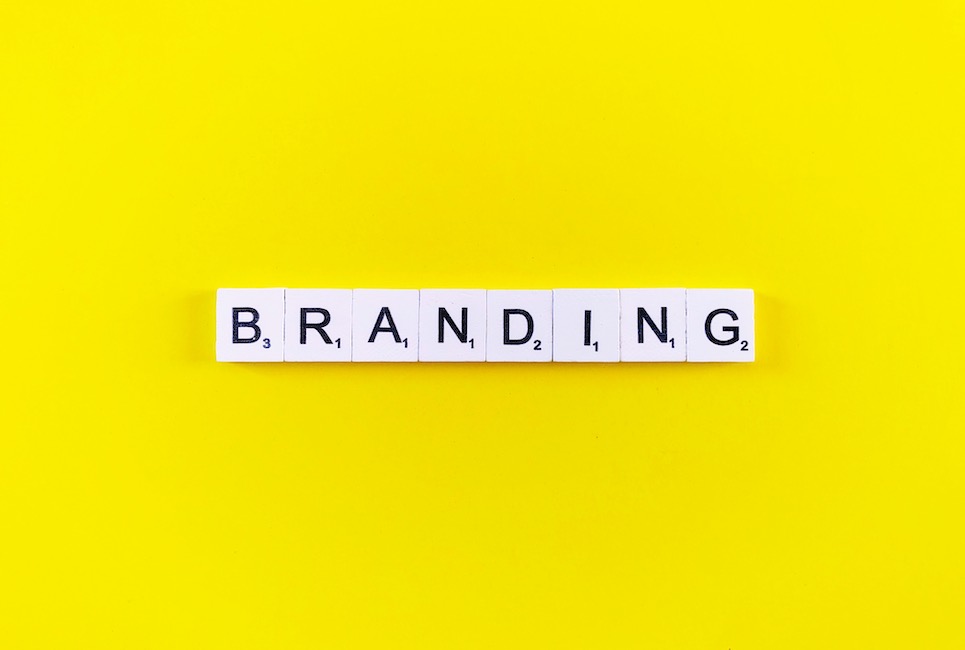
“Your corporate or personal brand is a story unfolding across all customer touchpoints.”
Jonah Sachs
Apple is more than a tech company. TOMS Shoes is more than a shoe brand. Mercedes-Benz is more than an automotive establishment.
Millions of people worldwide tune in to Apple’s WWDC event each year.
For every pair of shoes they sell, TOMS Shoes gives away a free pair to poor kids.
Mercedes-Benz’s global brand value stood at $21.35 billion in 2020.
People love these brands – not just because of their memorable logos or promising slogans. Of course, that’s part of the branding equation, but great brands give off many different signals ranging from messages to visuals to user experience that express their core ethos through the branding experience. In other words, they all work together harmoniously. Consumers love interacting with their products because they trust them to deliver a unique and incredible holistic experience, but they also like what the brand stands for because it makes them feel a certain way.
These days, you can say that customers call the shots. Thousands of your competitors are already trying to catch your audience’s attention. People crave personal and engaging experiences. They are always looking to build long-lasting relationships.
In fact, Walker Consulting found that nearly 86% of consumers have claimed that they don’t mind paying more for a better experience.
Personal Brand vs. Corporate Brand
Some people say personal brand some say business brand and some say corporate brand.
You might be a course creator or influencer.
You might be an ecommerce shop.
You might be an agency or consultant.
Whatever the case may be, branding is going to be an important part of your business.
A personal brand is seen as positioning yourself as the brand and authority.
A corporate brand is positioning the business entity, not a specific person.
However, the development of creating the brand in either situation is the same strategically.
Now, there are some challenges that come with creating a personal brand that are worth serious consideration.
If you build a personal brand based on your name then the business success might rely on you as the face of the brand and if you try to sell the business later it might be more difficult.
In the end, branding is branding, and I’m going to break down what it means to your success and what so many entrepreneurs today misunderstand about it.
A Common Misconception About Branding
If you think that branding, personal brand or corporate brand, is critical, then you are right.
If you believe that you should invest your top dollars in it, then you are right.
But, if you think that solid branding is all about visual identities such as logo and colors, then you are mistaken. This is a common misconception I hear from entrepreneurs I coach or who work with us at our Brand Studio.
Strong branding isn’t as easy as most people believe it to be because it the combination of several important elements that make up the business and express who you are to the world in a way that drives sales in the end.
Building a strong brand isn’t an overnight process.
People all across the globe are under the wrong impression that building a solid corporate or personal brand involves:
- Logos, Color Schemes & Website Design
- Brand Mentions, Social Popularity & Links
- Ad Campaigns, SERPs Visibility & Other Marketing Campaigns
If you think the same, then you are looking at branding completely wrong.
Think of those items as the surface of the ocean.
Authentic branding is much more complex and goes way deeper below the surface.
Brands like Nike, Starbucks, TOMS Shoes aren’t popular just because of their appealing visual identity because that is just a small part of a brand. Combine that with what they stand for, outstanding experiences they deliver, great products, and a culture people want to be part of. It’s like a status symbol.
You’ll see kids decorate their rooms with posters of bands they love because it reflects who they are and people pay $200 for a pair of jeans such as Diesel because it’s a status symbol. The brand means – high-end and being cool. Your business isn’t much different. People love Tom’s for what they stand for. Blake’s story is powerful and the idea of giving back to someone in need is something that people want to be part of.
Let’s dive deep into the realm of corporate or self-branding to uncover its true hidden meaning.
What is Branding?
One way to put it is…
“Branding is the art of becoming likeable, knowable and trustable.”
John Jantsch
Simply put, it’s how you make people feel the space you occupy in their mind.
Let’s say you’ve won a pair of shoes. Now, you are provided with the option to choose between two identical pieces. The only difference is that one pair is manufactured by Nike and the other by a no-name local manufacturer.
Which pair will you choose?
My guess – you choose Nike.
I could say that you didn’t choose Nike because of its logo or slogan. No, not those things in isolation. They are small cogs that are part of making a bigger machine work. You choose it because of the result created by those small cogs when combined with everything else behind the brand working harmoniously together. Nike has done a great job associating itself with high-performing athletes. And people want to feel that. Everything from its logo to products, to its origin story, is consistently expressed through visuals and contextual messages that make people feel a certain way.
For example, paint color isn’t the only reason why a person will fall in love with a car. Without performance, style and key features, the color is meaningless. But, when you combine this paint with the other elements, you’ll be winning hearts. Similarly, people don’t like Nike just because of its logo or slogan. Instead, it’s beloved because of its focus on delivering high-quality products and memorable experiences that make people feel like a high-performer.
When you consistently combine brand values with a smart visual identity, high-quality products, the right audience, and memorable experiences, you start to have a brand that people can’t resist falling in love with.
Sounds easy right? It’s not!
Corporate or Personal Branding is such a vast concept that most don’t know how to share a single sentence that encompasses its true meaning.
However, Branding Mag has done a decent job at defining branding:
“Branding is the perpetual process of identifying, creating plus managing the cumulative assets as well as actions that together shape the brand’s perception in stakeholders’ minds.”
Branding is a perpetual, i.e., a never-ending process. Just because you might be a small personal brand, you can’t just hire a graphic designer to build a logo or a copywriter to write your mission statement and slogan and be done with it. That’s not how it works. Instead, you need to ensure that your brand delivers a great experience to your audience at each stage of their journey. And that’s based on a strong brand strategy. It’s also why we give every client we work with a Brand Book.
Also, you need to identify who your target audience is, create a result-oriented brand strategy and manage everything that influences your brand’s position.
Cumulative assets include your visual identity, products, ads, content, customer support, sales funnel, services, human relationships, and so much more.
Here, your brand’s perception refers to its reputation. You’re not the only one sharing your brand story through all the different touchpoints. Every screen today is a word-of-mouth machine! If you don’t shape your brand right, people will tell your story for you and it might not be so good!
Developing your reputation means you need to create the right perception in people’s minds. That doesn’t mean you become something you’re not. That’s one of the biggest mistakes people make with their brand story. It means you dig deep into your truth to attract the right people. You need to build your brand’s perception in your audience’s minds. Not just your customers. Every single person who interacts with your brand.
This includes your customers, shareholders, employees, as well as business partners. That might be some or all of those depending on your business plan.
Let’s say you pour a cheap wine in one glass and a best-in-class wine in the other. Wine Spectator is a famous brand known for its ratings. So you label the cheap wine as the top-rated one by Wine Spectator and the best-in-class wine as the cheap one. The everyday wine drinker will see the approval of Wine Spectator and say it’s a great wine just because a brand they trust said so. People will buy anything Wine Spectator says is good.
And that’s the super-power of branding. It doesn’t matter if you’re a small personal brand or a massive corporate brand.
People will always prefer Nike over a no-name local shoe manufacturer. No one will pay $500 for local shoes. But just slap the logo of Nike on the local shoes, and it’ll sell like crazy. Branding can literally change how people interact with businesses.
You can’t make your audience purchase your products. But what you can do is deliver an outstanding experience, produce the top-quality product and consistently win their hearts. You need to build trust, authority, and credibility. Most importantly, you need to build a healthy reputation that’ll make your audience crave more.
Seth Godin once said, “A brand is a set of expectations, stories, memories, and relationships that, when combined, account for a customer’s decision to select one product or service over another.”
Right now, you should focus on:
- Building a strong brand identity (personal brand or big corporate brand)
- Increasing your brand awareness
- Consistently delivering a memorable experience.
- Offering top-notch products that actually solve their problems
That being said, let’s look at the reasons why branding matters.
5 Reasons Branding is the Heart & Soul of Every Business
“A brand for a company is similar to what a reputation is for a person. You can earn it by trying to do hard things well.”
Jeff Bezos
Whether you aim to build a personal brand or one for your business, here’s a list of the five reasons why branding matters:
- Represents the promise made to your customers/clients.
- Clarifies Focus, i.e. Positioning & What You Stand For
- Helps Build Long-Lasting Relationships
- Guides Marketing & Advertising Efforts
- Engages & Aligns Employees
Let’s touch on each one now with a bit more insight.
1 – Represents the Promise Made to Your Customers/Clients
Let’s look at Amazon. When Jeff Bezos launched it in 1995, he already wanted it to be an everything store.
Initially, the platform only sold books. But just look at it now. Whether you want to purchase the latest iPhone or clothes or groceries, you can hop onto Amazon and add products to your cart.
Jeff Bezos never lost sight of what he wanted Amazon to be. And soon, he built a brand around it.
Jeff Bezos’ vision made its way into the brand’s logo by showing the arrow that sweeps from ‘A’ to ‘Z.’ This is a perfect way of representing that if there’s anything out there in the world, you can purchase it on Amazon.
Jeff Bezos has done an outstanding job of defining his brand. And that’s how he kept his team focused on the things that actually mattered.
We aim to be Earth’s most customer centric company. Our mission is to continually raise the bar of the customer experience by using the internet and technology to help consumers find, discover and buy anything, and empower businesses and content creators to maximise their success.
Change Creator founder Adam Force had a great discussion with Bernhard Schroeder, the man who built and launched the Amazon brand. You can listen to that interview here.
Branding isn’t just designing your website, products, or logo. Those are all important parts of a much bigger picture but branding at its core is how you make people feel and the promise you make to your audience.
Here’s one of my favorite quotes from Bernhard…
“ Brands that focus on the customer and stay relevant as a brand – meaning they continue to create a customer feeling that is uniquely positive – will thrive and continue to be leaders.
Companies that focus on building great products but not great brands will face competition over time and ultimately struggle in the marketplace.
Brands, not products, rule the marketplace.”
Bernhard Schroeder
And at the end of the day, you need to live up to your words. That’s the secret ingredient to building a strong brand. People today see through the bullshit.
You’ll be known for the promise you fulfill, not the ones you make.
Successful branding allows you to make a promise to your customers and helps you align it with your business goals. And that’s how you can make the real difference.
Clarifies Focus, i.e. Positioning & What You Stand For
By building a brand, you’ll be telling them who you exactly are. At the same time, you’ll be telling your audience who you aren’t.
This will help you build a result-oriented positioning statement that differentiates you in the market. Your promise will help you build a strong purpose statement that helps you align with who you exactly are.
Also, it helps you tell the customers/clients what to expect from you. Finally, you will be able to put in front the things that actually matter.
In short, strong branding clarifies focus and becomes your North Star for everything you do. Not just yours, but of everyone who’s a part of your brand.
Brand positioning is one of the most critical steps we take with clients at our Brand Studio and always becomes an eye-opener.
Helps Build Long-Lasting Relationships
What’s the one thing that people are really afraid of these days? That’s engaging with an all-talk, no-action brand. People hate losing their money, especially to brands that greenwash or just don’t deliver on their promise.
And if you really want to build a successful brand, your focus should be on building long-lasting relationships. Strong branding helps you live up to your promise and focus on your audience’s emotions.
“If you want to sell it, they need to feel it.”
Human beings are emotional creatures. We want to be rational. Most of us even prepare a pros and cons list. But, at the end of the day, we make decisions based on how we feel.
Great marketing wins through emotion and seals the deal with logic.
That’s the reason you should make sure that your brand invokes elicit emotions. This is the power of storytelling and why we must master that craft. Your customers should feel good when they hear your brand’s name or come across your logo.
Strong branding allows you to deliver top-notch products and deliver the best possible experience. And consistently living up to the promise will help you build a loyal customer base. Sooner or later, your customers/clients will feel positive about your brand. They’ll even refer your products or services to their loved ones. Solid word-of-mouth and if you’re lucky maybe some earned media!
And that’s the beauty of it.
Guides Marketing & Advertising Efforts
Strong branding helps you identify what your mission statement is and what kind of person or company you want to be. Most importantly, it helps you identify what problems your prospects or customers face the most.
And based on that, you can create your stories and target your customer/client’s emotions. Not in a manipulative manner, but in an authentic and aligned manner so it really resonates. Delivery is about sharing the right story at the right time with the right people. You can invoke positive emotions, which will help you level up your marketing and advertising campaigns.
Great branding allows you to define your purpose and story clearly. Otherwise, your audience may never know what to expect from you or who you really are. A confused person NEVER buys! And when you run a small personal brand or a growing e-commerce brand, every customer counts!
Most importantly, it helps you align your story with their pain points. When you use these emotions and your stories in your marketing and advertising efforts, you’ll see a higher conversion rate.
That’s the power of branding.
Engages & Aligns Employees
As a business owner who employs a team or if you’re a smaller personal brand you might have virtual assistants and contractors, you need to ensure that everyone contributing to your business have one single goal that aligns with your brand’s purpose. This consistency in the delivery of your brand is essential.
A strong brand doesn’t just focus on its customers or clients. Instead, it also looks after the needs of the employees. Your employees are the brains of your business. They are no different from your customers or clients and should feel good working with you. They should be inspired to work towards something they believe in. That’s when they’ll be most productive.
Successful brands reward their employees. Also, they have a well-defined vision and a clear communication strategy. This helps them focus on your brand’s one true goal. And when they feel good about working for you and know what your brand actually represents, they’ll shed blood, tears, and sweat (that’s just a metaphor) to take your brand to the moon.
Build Your Personal or Corporate Brand Today!
Don’t focus only on your visual identity. Don’t just pop on Sqaurespace and use a template that doesn’t represent your brand and isn’t setup to sell for your strategy.
A corporate or personal brand goes way beyond that.
Remember, great brands always win over great products. Why? Why because when people love a brand they won’t leave you when another product in the market delivers the same thing they will continue to buy whatever you offer.
And always make sure that you are delivering the best possible experience to your customers.
So, what are you waiting for?
Sow the seeds today.
~Be a Change Creator!






